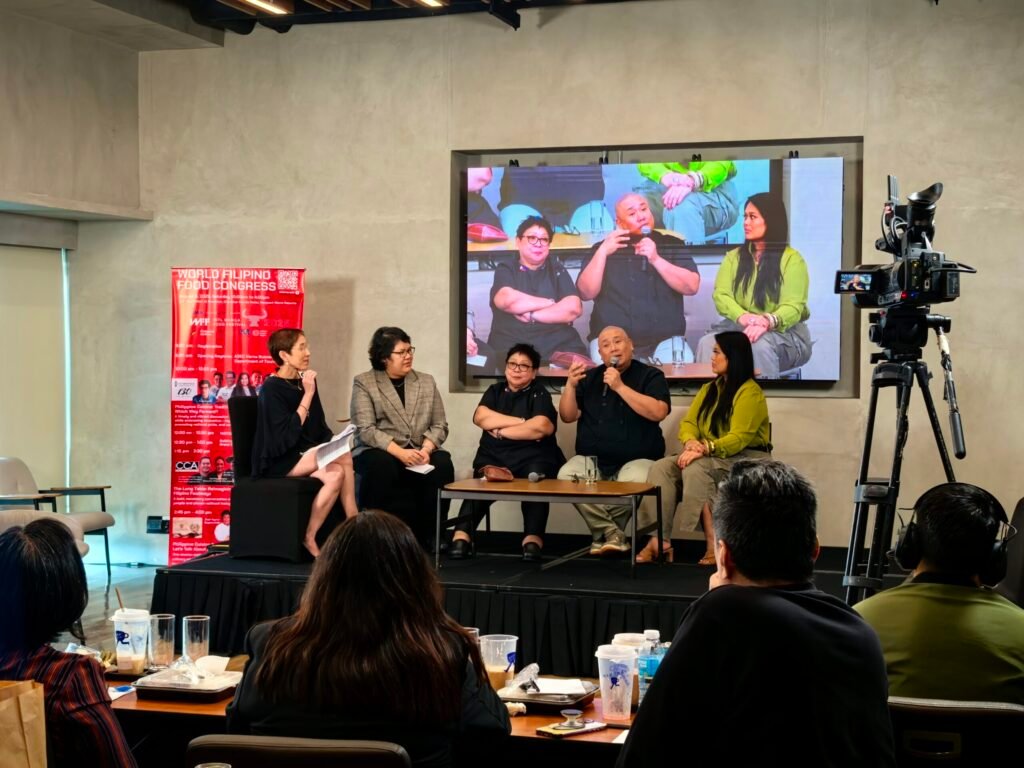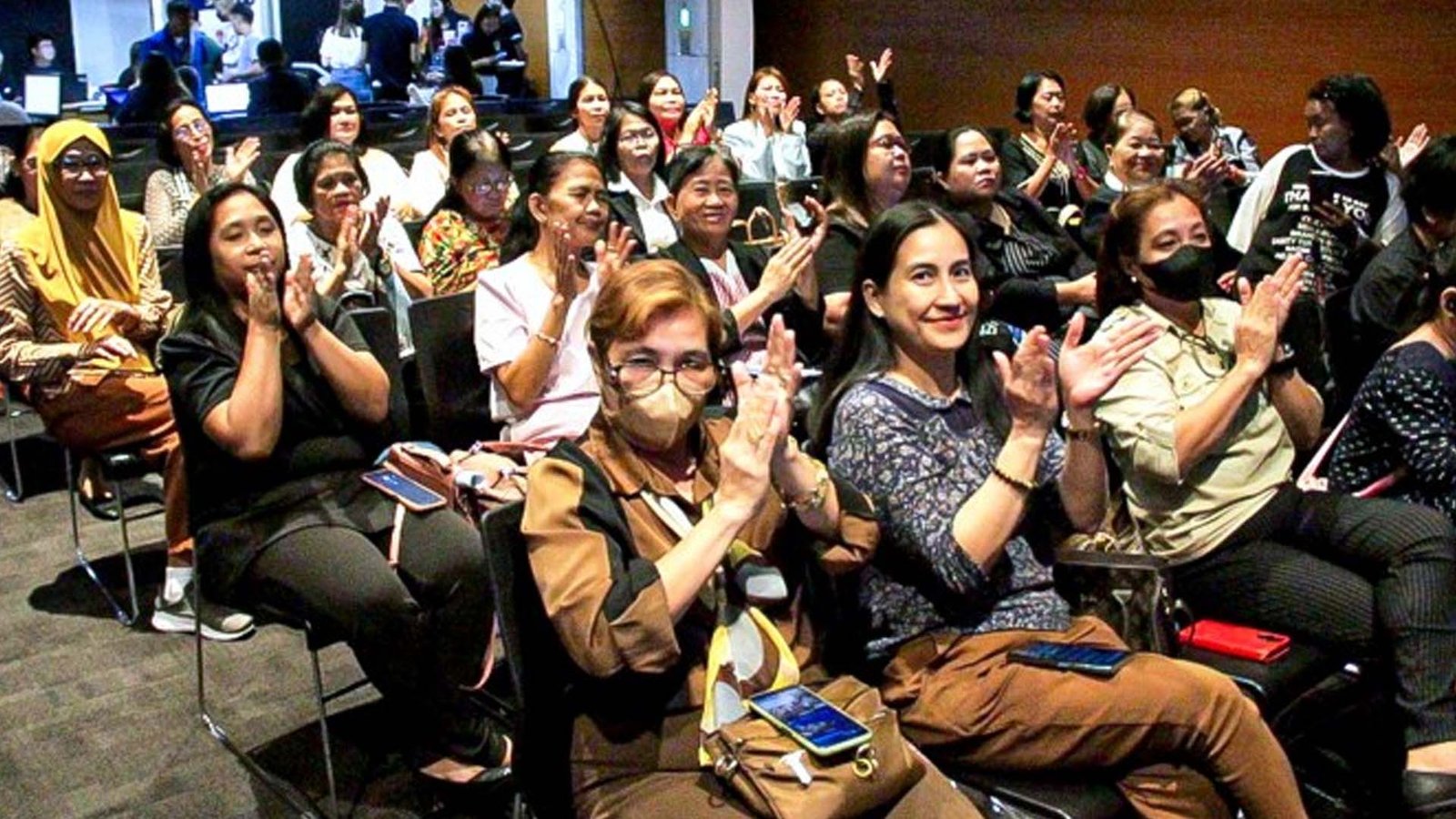Manila, Philippines — While the 2025 International Manila Food Festival (IMFF) brought together the country’s most exciting culinary flavors, it also became a platform for one of its most important food conversations. Enderun Colleges led the charge in a panel discussion titled “Philippine Cuisine for Culinary Education: Let’s Talk About Adobo,” held at Newport World Resorts.
As the global spotlight on Filipino cuisine grows brighter, so does the urgency to ask: How do we teach and preserve our culinary heritage without losing the richness of its diversity?
Moderated by Chef Suzette Montinola, Academic Section Head of Enderun’s Culinary Arts Department, the discussion brought together some of the Philippines’ most respected culinary minds:
- Chef Myrna Segismundo, celebrated author and international culinary ambassador
- Chef Tatung Sarthou, bestselling author, educator, digital storyteller
- Nicole Ponseca, restaurateur and cookbook author who helped ignite the Filipino food movement in the U.S.
- Rosanne Nicollette Eleazar, a professor specializing in Philippine culinary education
The panel used adobo — perhaps the most iconic yet debated Filipino dish — as the lens through which to examine larger questions about culinary education, cultural identity, and codification.
“As Filipino cuisine gains global attention, we are no longer just being asked to serve our food — we’re being asked to define it,” said Chef Suzette Montinola. “And in the context of education, definition is essential. Our goal is not to limit creativity, but to build a common foundation that respects both structure and soul.”

The discussion acknowledged how countries like France, Japan, Thailand, and Italy have created structured culinary systems to preserve and promote their cuisine worldwide. But in the Philippines — a country where food traditions are passed down orally, shaped by colonization, migration, and hyper-local customs — codifying recipes like adobo presents unique challenges.
“We need to build the scaffolding that makes Filipino food teachable,” Montinola added, “but we must do it without erasing the diversity that gives it life.”
Chef Myrna Segismundo, who has presented Filipino cuisine on global stages including Madrid Fusión and Le Cordon Bleu in Paris, emphasized that any codification effort must begin at home.
“We need to start with the young and educate them early about the Filipino food they’re eating. I’ve worked with chefs who know how to cook, but not why. That’s where education becomes essential. When you understand the ‘why,’ you become more creative, more innovative, and more deeply connected to the culture of your country.”
Chef Tatung Sarthou, a well-loved digital content creator, highlighted the role of modern media in culinary education.
“My body of work lives on social media, where I focus on teaching recipes in a simple, approachable way. It stems from my belief that preserving culture means adapting with the times — making our food accessible, using ingredients people already have, and meeting them where they are.”
Nicole Ponseca, known for her game-changing NYC restaurants Maharlika and Jeepney, shared her experience introducing Filipino cuisine to American diners.
“There’s a need for foundational understanding — a kind of ABC for Filipino cuisine. We can start by identifying the key ingredients that every chef should know when it comes to adobo. From there, we can explore regional variations and understand how factors like migration or even food waste have shaped the way we cook and define our food.”
Rosanne Nicollette Eleazar, a professor and gastronomy scholar, brought the conversation back to the classroom.
“When we design our curriculum, it must be intentional — it should actively promote Filipino culture and values. Standardizing an adobo recipe is challenging because I want my students to respect the rich diversity of adobo across regions. There’s no single ‘right’ way to cook it, and the real challenge lies in helping them appreciate that diversity.”
The panel didn’t seek to declare a single “correct” version of adobo, but rather to raise critical questions that the industry must begin to address:
- Who gets to define what’s “authentic”?
- Can we establish a common culinary language without compromising diversity?
- How do we teach Filipino cuisine systematically without losing the emotion and memory that defines it?
“Our goal isn’t to find a single answer,” Montinola concluded, “but to begin the conversation — with education in mind, and with a deep respect for our heritage.”
Enderun Colleges, long known for its leadership in culinary education and innovation, is proud to champion this essential dialogue. As Philippine cuisine continues to rise in global recognition, it’s not enough to be seen or tasted — it must be understood, taught, and preserved with care.











